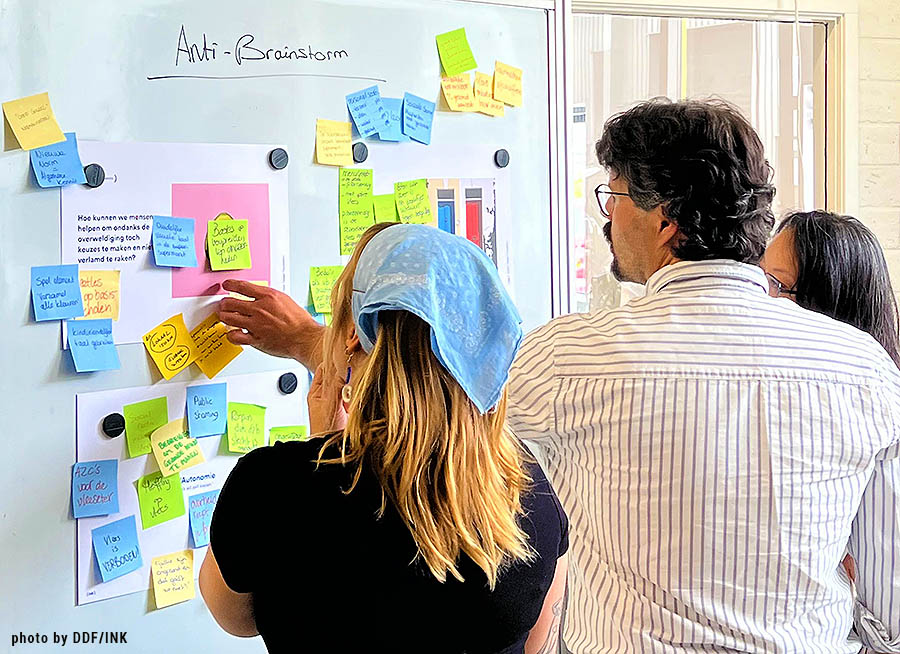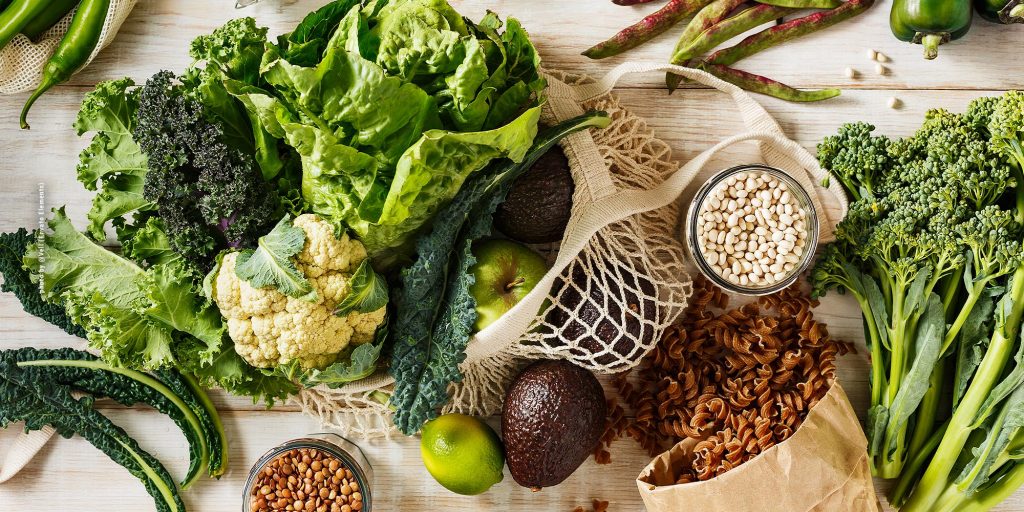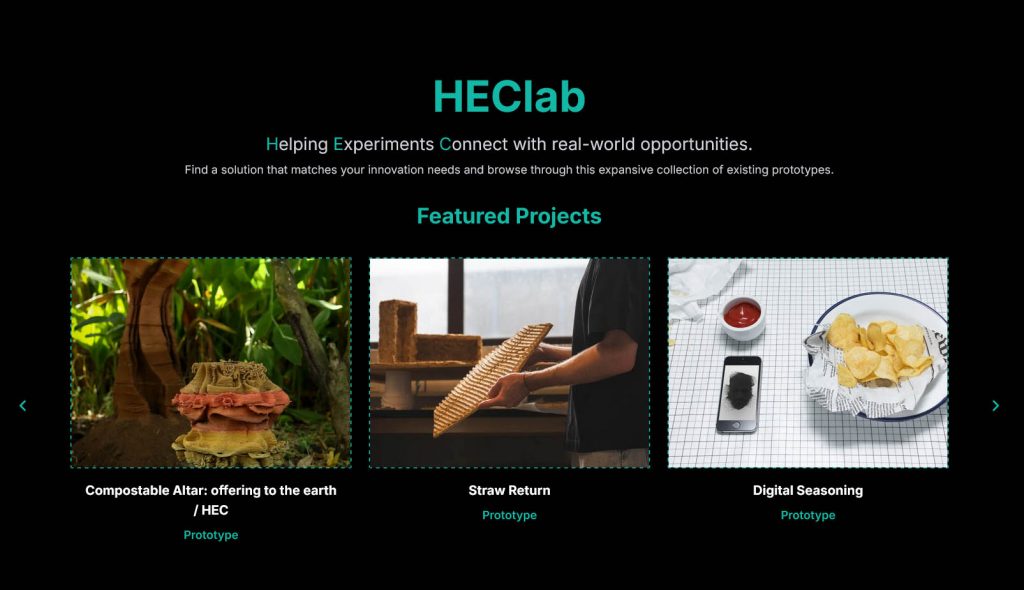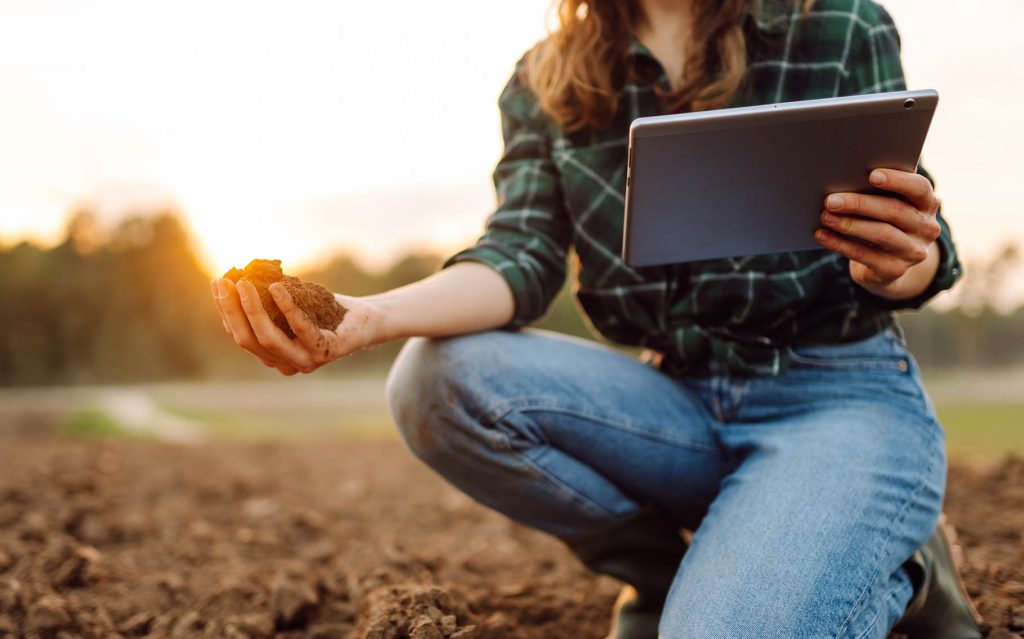Expanding Our Prototype Park Approach Through Dutch Design Foundation’s Co/Lab ○ S+T+ARTS Hungry EcoCities
As a consortium guiding 40+ food-related collaborations, Hungry EcoCities continues to expand its approach to prototype testing and stakeholder engagement. Following our successful demonstration events in Turin, Rotterdam, and Berlin, we’re now partnering with the Dutch Design Foundation’s Co/Lab to test how our research and insights can inform food environment design, practice and policy.
Expanding the Prototype Park Concept
Our collaboration with Co/Lab: Hungry for Change extends the prototype park approach and allows us to test the insights from our Humanizing Technology Experiments and Paths-to-Progress Experiments with designers, broader communities, government stakeholders and policy makers.
Co/Lab addresses the question:
“What if we redesigned our food environment so the healthiest and most sustainable choice is the one you can’t resist?”
This design-driven approach provides a testing ground for applying our consortium’s research and experiment learning.
The collaboration includes, besides Hungry EcoCities, Rabobank, the Dutch Ministry of Interior Affairs, and Province Noord-Brabant—each contributing their perspective on food system challenges. For Hungry EcoCities, this represents an opportunity to test insights from our broader consortium with practitioners while learning how different sectors approach food environment design.

Testing through dissemination
From the start of Hungry EcoCities, we’ve treated dissemination as experimentation. Rather than curated exhibitions or plain talks, we create testing environments where prototypes meet stakeholders who can implement change. In this format we are not just sharing our insights—we’re actively testing new models of how art, science, policy, and industry can collaborate. Our demonstration events in May 2024 gave confidence that new approaches works—from collaborative working sessions with CRA in Turin to networking events at World Horti Center in Rotterdam.
Our participation in Co/Lab continues this approach. Rather than presenting finished prototypes, we’re engaging in live experimentation with stakeholders who can implement change at scale. During three collaborative design sessions as part of the Co/Lab, space is created for our consortium’s insights to merge with practical implementation knowledge from government and industry partners.
“Experiments are just the beginning. All value comes from analysing and diffusing the outcomes. Environments like Co/Lab: Hungry for Change allow us to reflect upon our experimental work with practitioners and professionals and share their outcomes with thousands of visitors during DDW. That is why this is the perfect opportunity for us to close our Hungry EcoCities Prototype Park series. “
Rodolfo Groenewoud van Vliet, In4Art , co-coordinator Hungry EcoCities
Dutch Design Week: Connections and knowledge exchange
During Dutch Design Week (October 19-27, 2025), our consortium will be present to facilitate connections that extend beyond our project lifespan. Dutch Design Week attracts over 350,000 visitors and serves as Europe’s largest design event. Hence, Dutch Design Week offers a broader platform to interact with industry experts, practitioners, and designers. For Hungry EcoCities, it’s an opportunity to create spillover effects, using Co/Lab outcomes as bridges to connect our work with new collaborators and contexts.
This partnership enables multi-scale testing. While our individual projects explore specific interventions—from urban farming technologies to food waste reduction systems—Co/Lab allows us to test how these innovations might influence larger food environments and policy frameworks.
Working with Dutch ministries and provinces provides insights into implementation challenges that individual artistic or technological innovations might not reveal. Meanwhile, our consortium‘s diverse expertise offers fresh perspectives on how to make sustainable food choices accessible rather than aspirational.
This partnership demonstrates our approach to art-driven innovation: not separate from systems of implementation, but actively engaged in reshaping them. By working alongside policy makers, financial institutions, and regional governments, we’re testing whether artistic approaches to food system design can translate into scalable solutions.
The multidisciplinary teams that define Hungry EcoCities—bringing together artists, agri-food companies, and scientists—find natural resonance in Co/Lab’s design-thinking methodology. Both approaches recognize that complex challenges require diverse perspectives and experimental testing.

The HungryEcoCities project has received funding from the European Union’s Horizon Europe research and innovation programme under grant agreement 101069990.


